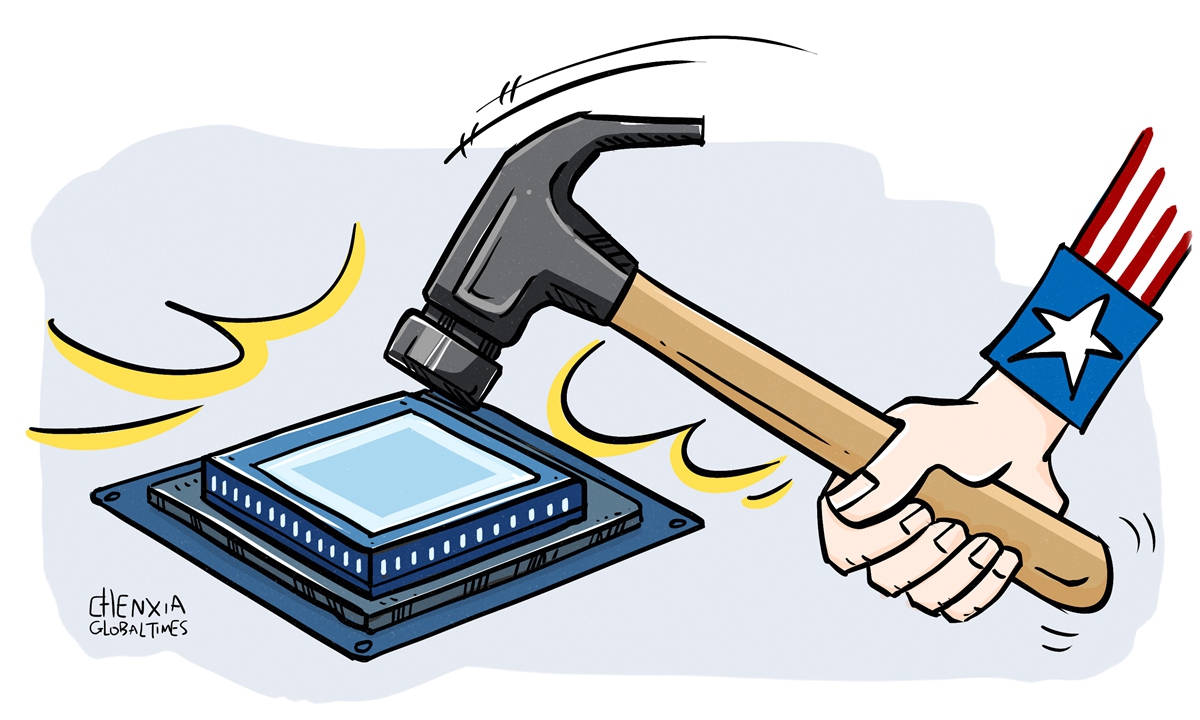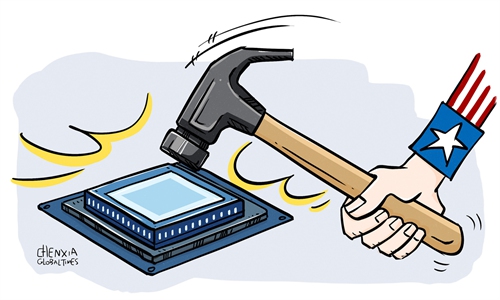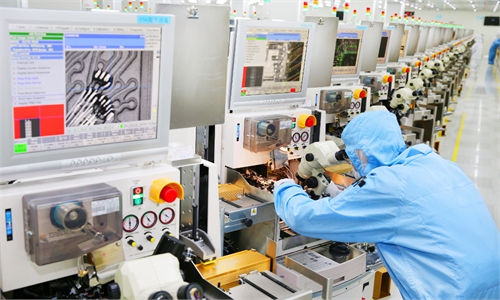
Illustration: Chen Xia/Global Times
The US has waged a chip war against China to stifle the latter's technological progress in cutting-edge areas, but doubts and a backlash over the potential consequences have been growing as Washington's strategic mistake looms increasingly larger and high-tech industry players in the US fear becoming casualties in the self-defeating war.Chief executives of major US chip companies - Intel, Qualcomm and Nvidia - urged a halt to more curbs on chip exports to China when meeting with top Biden administration officials on Monday to discuss China policy, Reuters reported, citing the US State Department and sources.
On the same day, the US-based Semiconductor Industry Association trade group called on the Biden administration to "refrain from further restrictions" on chip sales to China.
These lobbying efforts came as the Biden administration is reportedly considering updating its chip bans imposed in October against China.
While it is possible for the US to delay China's chip manufacturing development by various measures, the facts show it is impossible for it to stop China from developing its own chip technology.
Despite US pressure, China is apparently accelerating its technological and scientific development, which is bound to see breakthroughs.
For instance, news surfaced this week that two major Chinese chip equipment makers expect robust growth in the first half of 2023, thanks to soaring demand for local products amid tight US restrictions on exports of advanced chip production equipment to China.
The news from China could somehow explain why American chip giants are so eager to lobby their government to ease export restrictions against China. First, China is the world's largest market for chips, with imports amounting to $415.6 billion in 2022.
At a time when global chipmakers are seeing a slowdown in demand due to various factors such as the sluggish economic outlook, the Chinese market is not something they can easily skip.
A decline in their market share, which is likely to happen if Washington further tightens export curbs, may directly lead to decreased sales and profits, which will in turn affect their subsequent research and development budgets.
Second, China can have its own chip development plan. If American chip giants are not allowed to sell chips to China, that means they will lose market share to local chip companies, offering them time and market space to grow to be big in the future global competition.
In Washington's chip war against Beijing, export controls or technological "decoupling" may be its most important weapon in its pursuit of containing China's technological advances, but one fatal mistake is that the weapon might only have a short-term effect in a long-term fight.
That means export restrictions, which may deal a heavy blow to China's semiconductor industrial chains in the short term, could motivate China's independent innovation and research, conducive to its long-term high-quality growth.
Politicians in Washington have chosen the wrong way to maintain the country's technological superiority, but the end result will probably backfire. The mistake was made at the expense of its own semiconductor industry, which risks its development opportunities.
A government is supposed to protect its domestic industries' interests, particularly high-tech ones, so that companies can focus on their business and seek further advances. But that logic does not apply to the chip war, where American technology companies have also suffered in both the short term and long term.
Fundamentally speaking, when the US chip industry is deeply intertwined with the Chinese market, viewing the tech competition with China as a zero-sum game with only one winner is a suicidal approach. What's worse, the more its interests get hurt, the less possibility it can turn back, which is dangerous for the US and the world.



